Discover the practical pros and cons of vinyl and aluminum windows to make the best choice for your home.
Durability Comparison
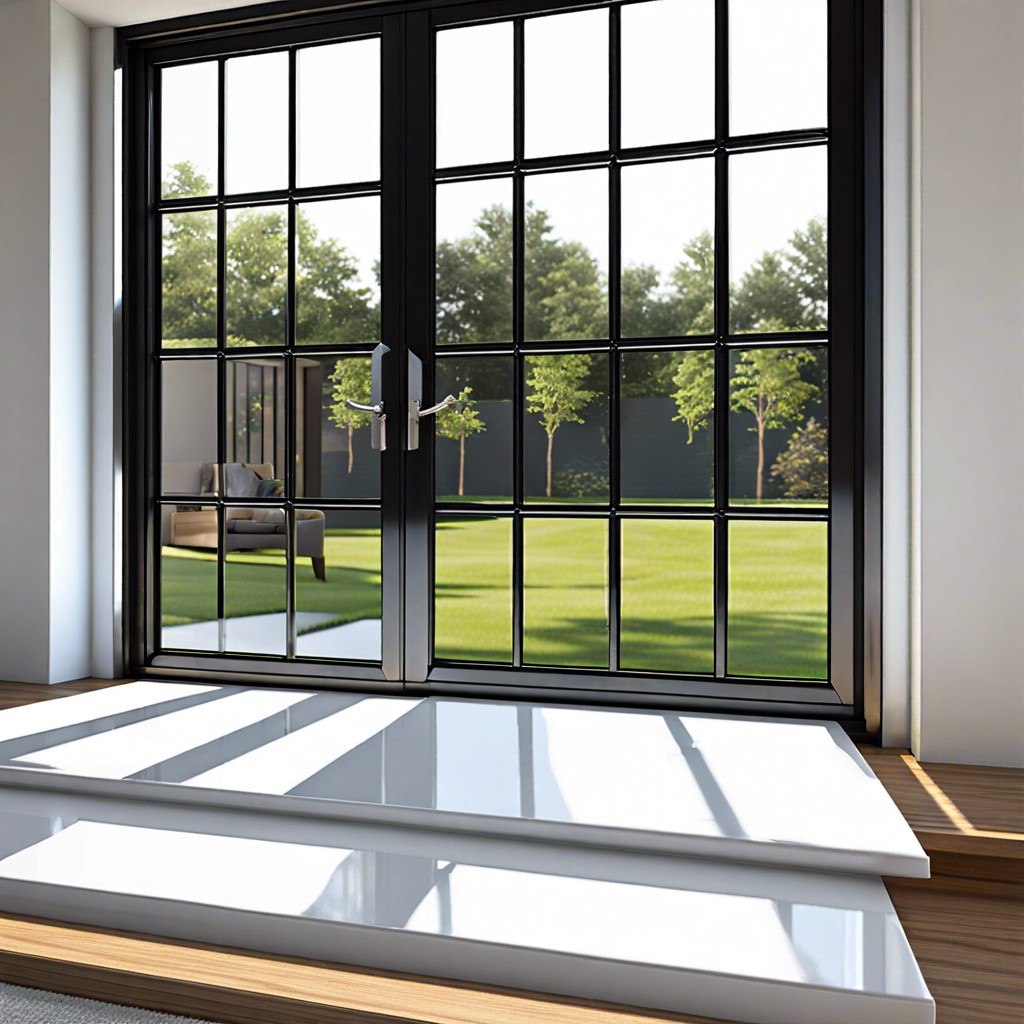
Vinyl windows are known for their durability, requiring minimal maintenance. They do not rot, chip, or corrode like aluminum windows. This makes vinyl a popular choice for long-term investment in your home’s aesthetics and functionality.
Energy Efficiency

Vinyl windows offer excellent energy efficiency due to their insulating properties, helping to reduce heating and cooling costs. Aluminum windows, on the other hand, are less energy efficient compared to vinyl due to their conductive nature.
Cost Analysis
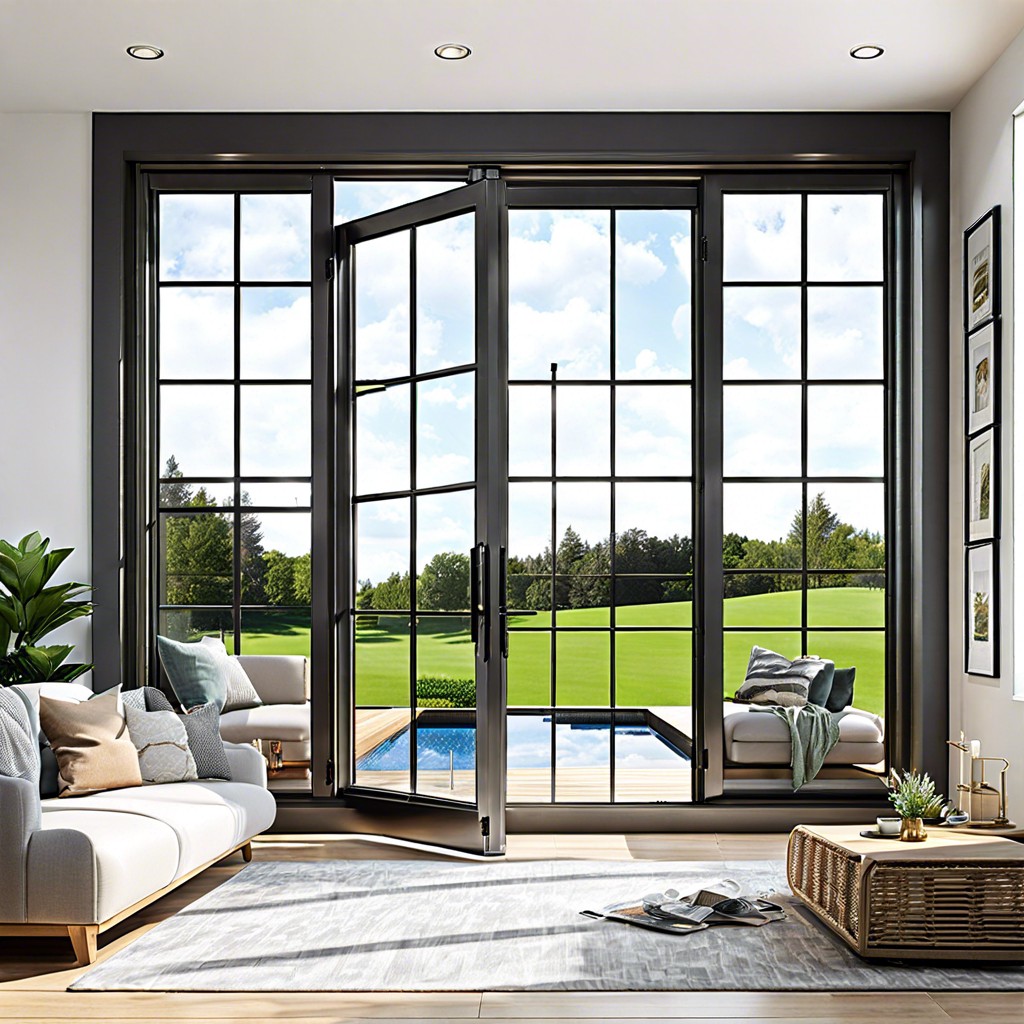
When comparing vinyl and aluminum windows, considering the cost implications is crucial. Understanding the financial aspects of each option can help you make an informed decision based on your budget and long-term savings goals.
Maintenance Requirements
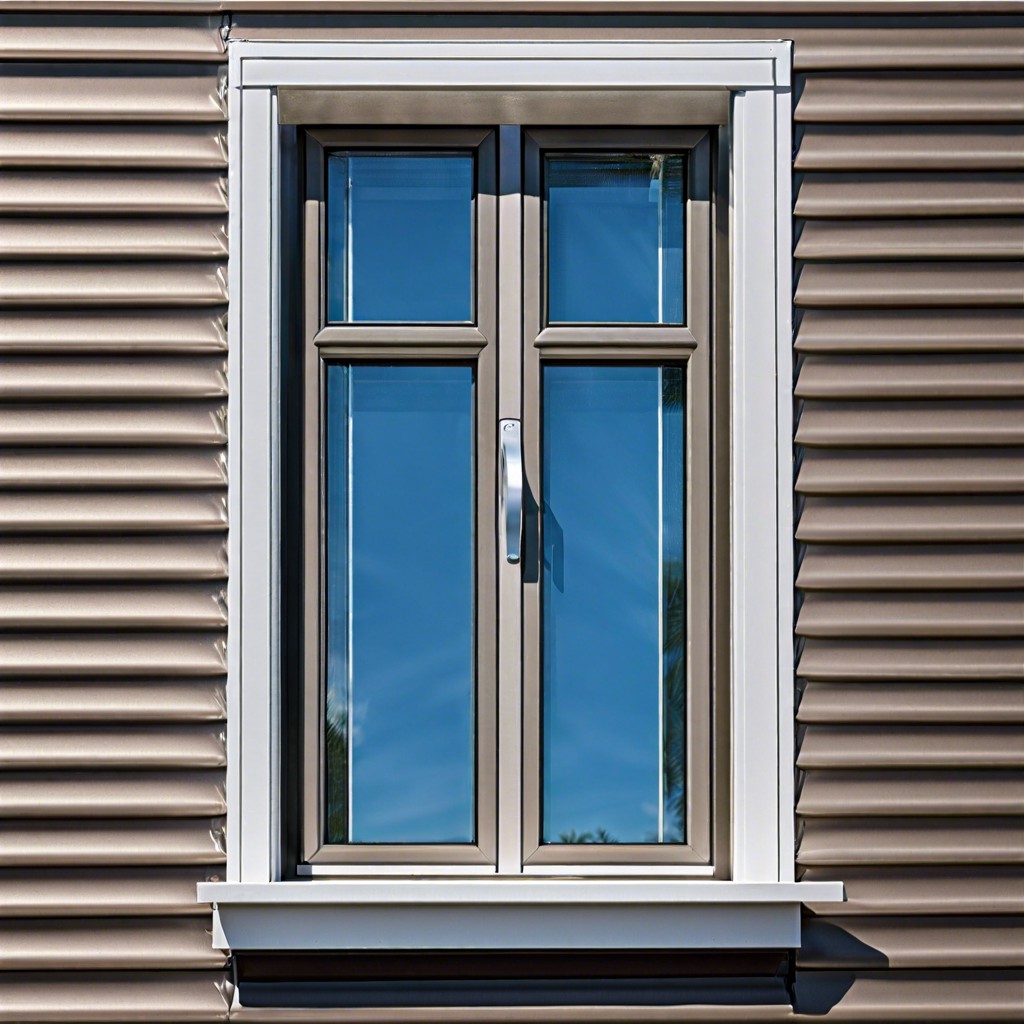
Vinyl windows are low maintenance, requiring only occasional cleaning to keep them looking new. Aluminum windows may require more upkeep due to the potential for corrosion in certain environments.
Aesthetic Preferences
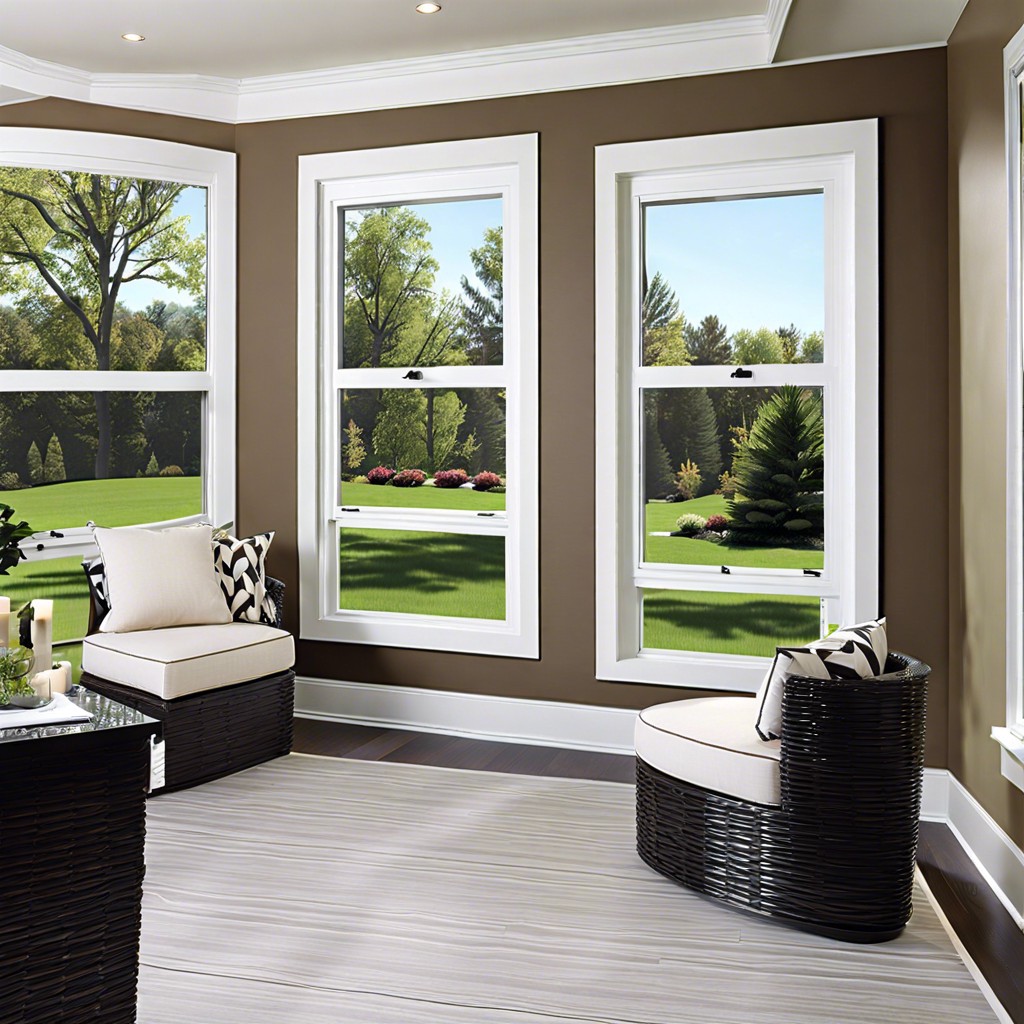
Aesthetic preferences: Detailing the appearance choices between vinyl and aluminum windows and their impact on the overall look of a home.
Installation Process
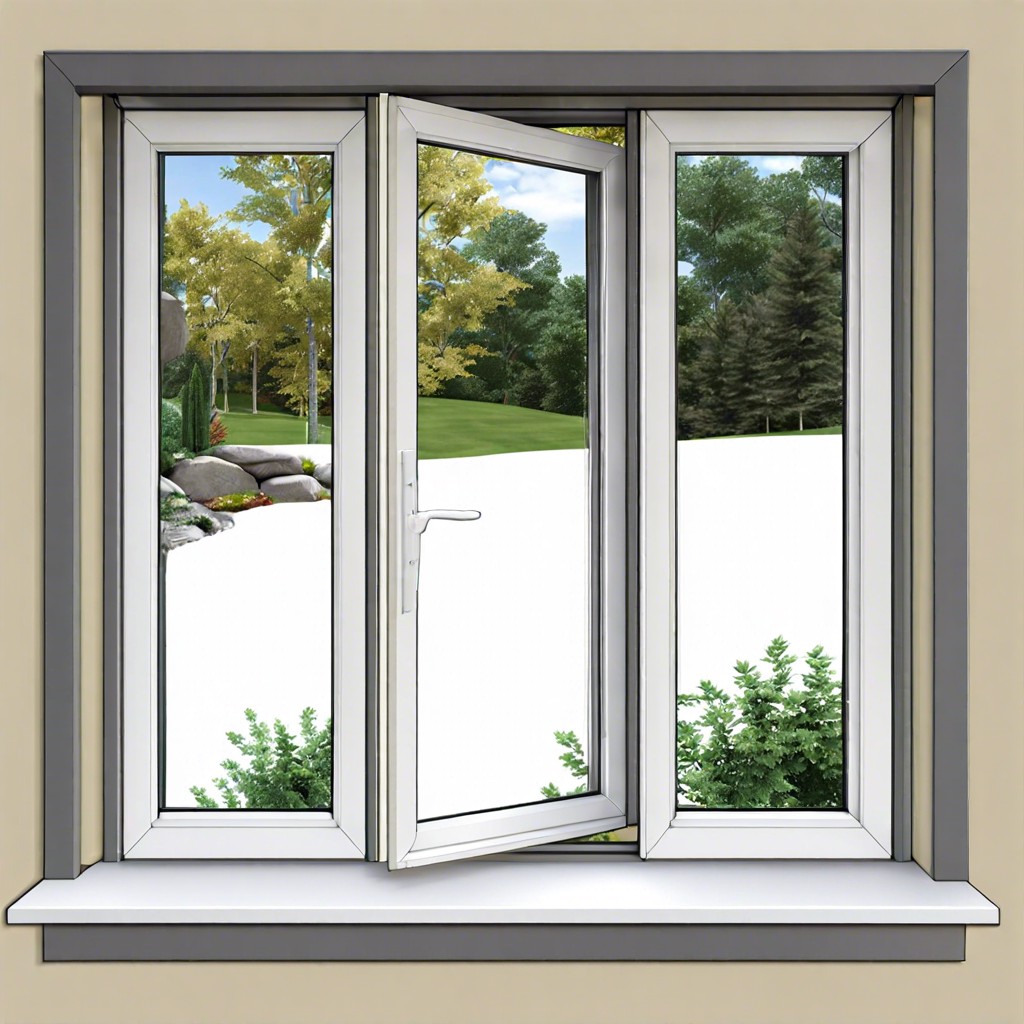
The installation process of vinyl and aluminum windows involves fitting the new windows into the existing window openings. Both materials require precise measurements and professional installation to ensure a proper fit and maximize energy efficiency.
Environmental Impact

The environmental impact of vinyl versus aluminum windows considers factors like sustainability, recyclability, and energy efficiency. Aluminum is highly recyclable, but vinyl windows are energy-efficient during their lifespan. Consider the environmental impact when choosing between the two window materials.
Noise Reduction Capabilities
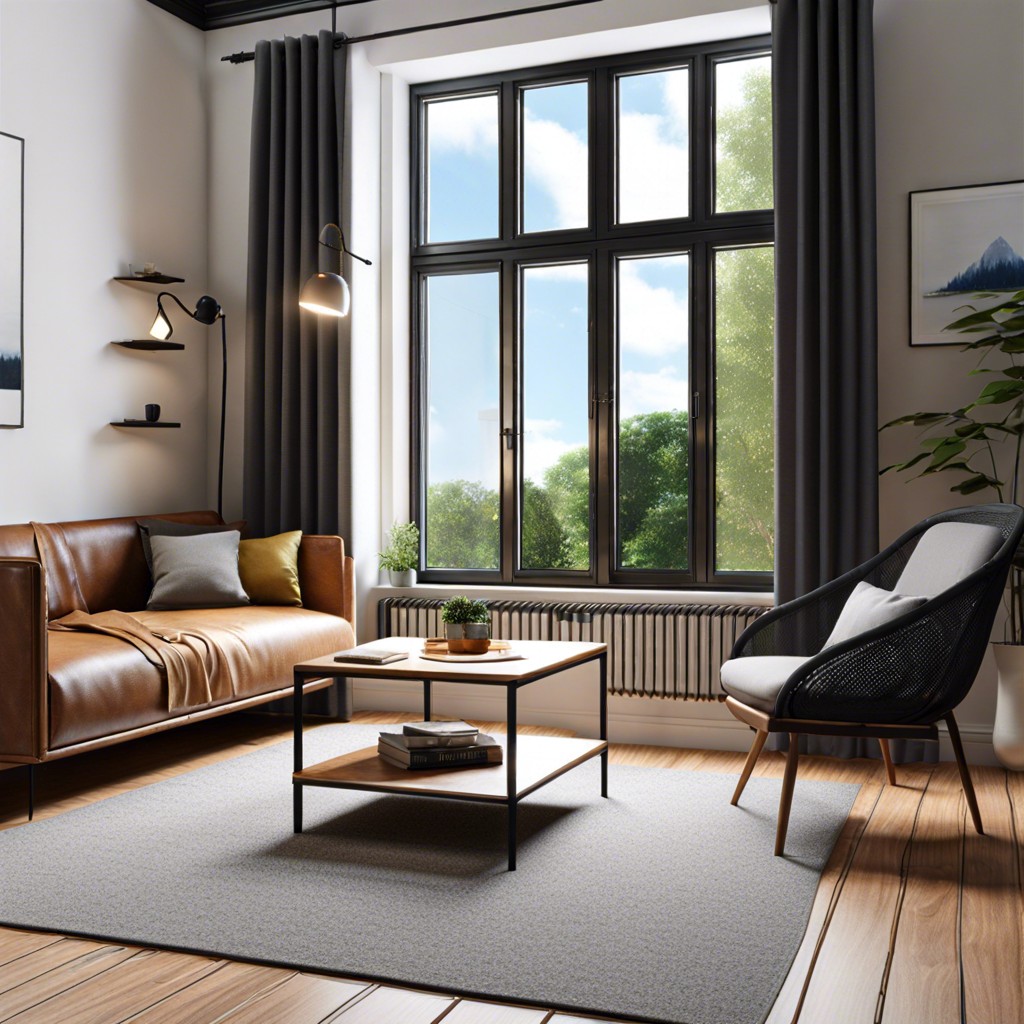
When considering vinyl vs. aluminum windows, noise reduction capabilities should be evaluated to determine which material better minimizes external sounds for a quieter indoor environment.
Frame Thickness and Sightlines
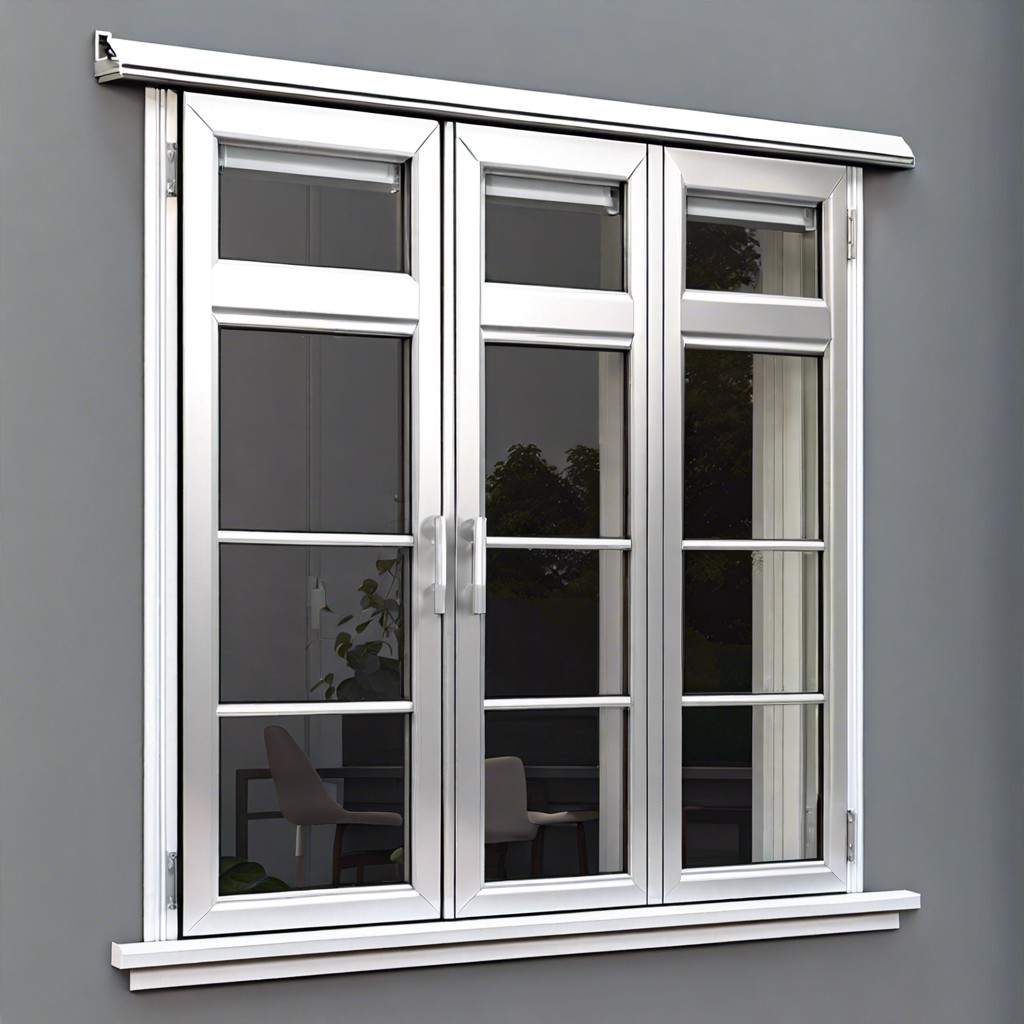
Thin frames offer sleek sightlines for a modern look, while thicker frames may provide better insulation.
Weather Resistance
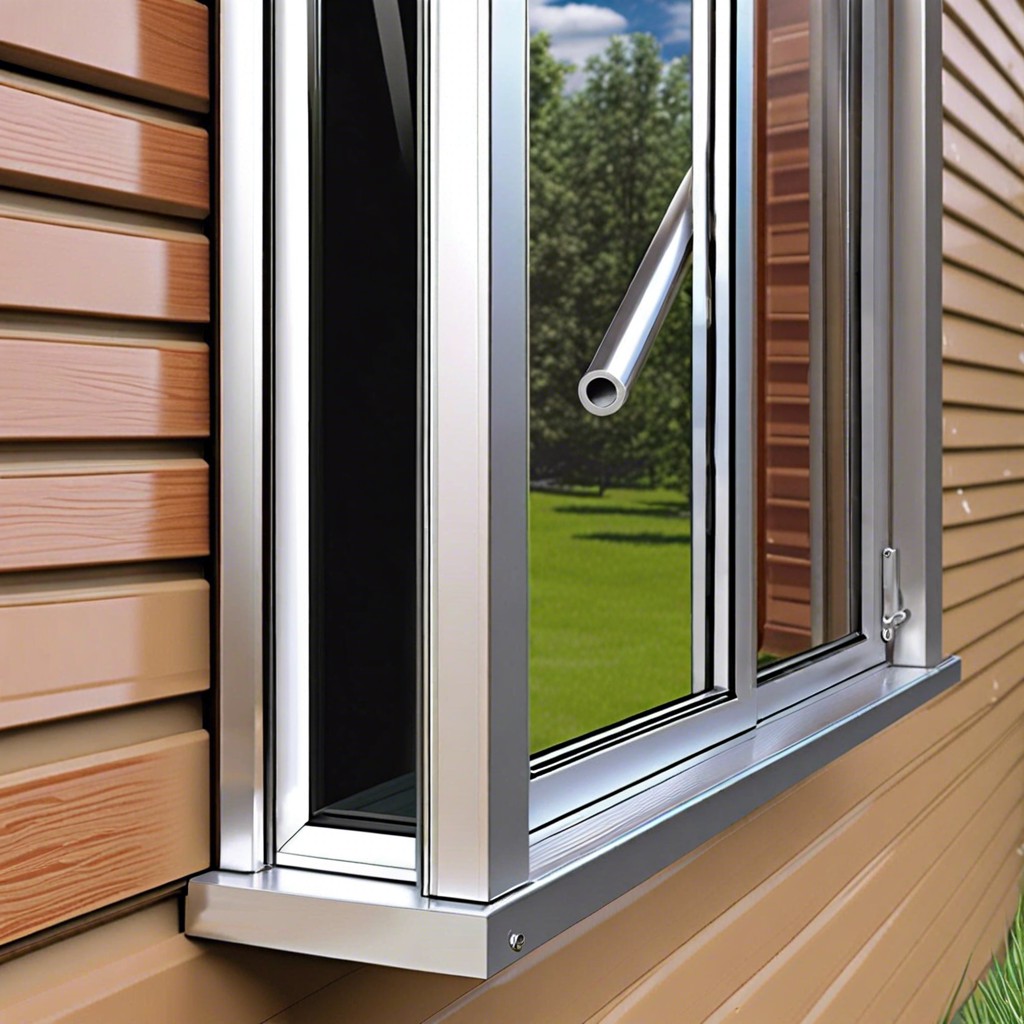
Vinyl windows are highly resistant to moisture, making them ideal for humid environments. Aluminum windows are prone to corrosion in coastal regions due to their susceptibility to salt damage.
Lifespan and Warranties
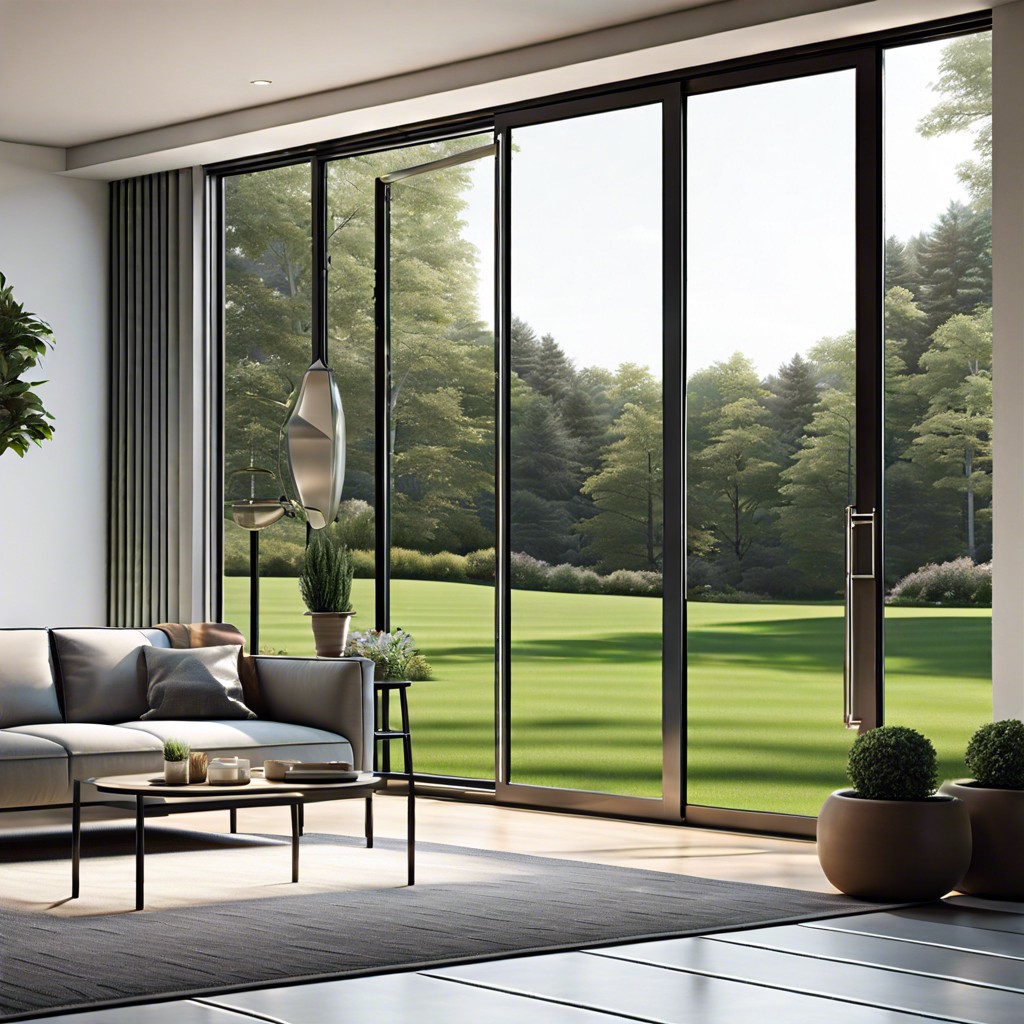
Vinyl windows typically have a lifespan of 20-40 years and come with warranties averaging 20 years, while aluminum windows usually last 30-45 years with warranties spanning 20-30 years.
Customization Options
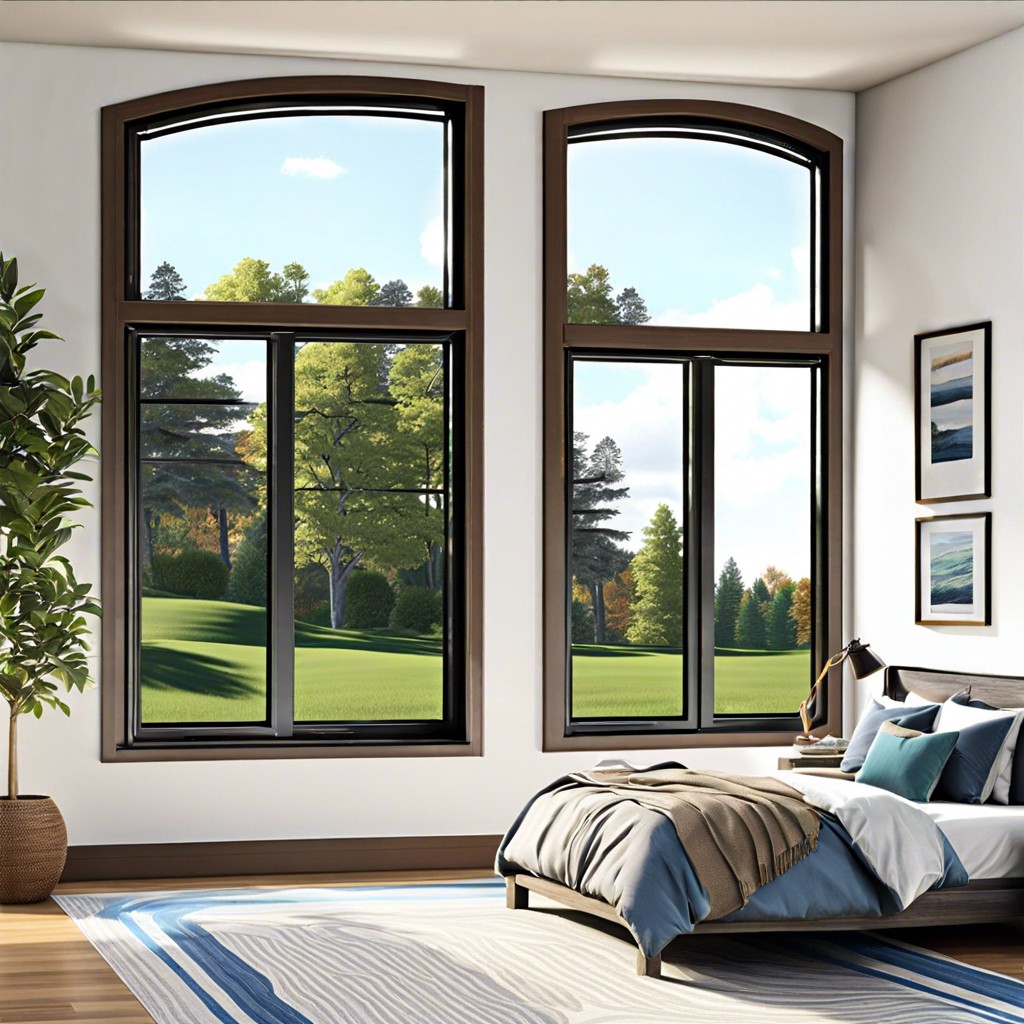
Customization options allow homeowners to tailor vinyl and aluminum windows to their preferences with various colors, finishes, and hardware choices for a personalized look.
Resale Value Impact
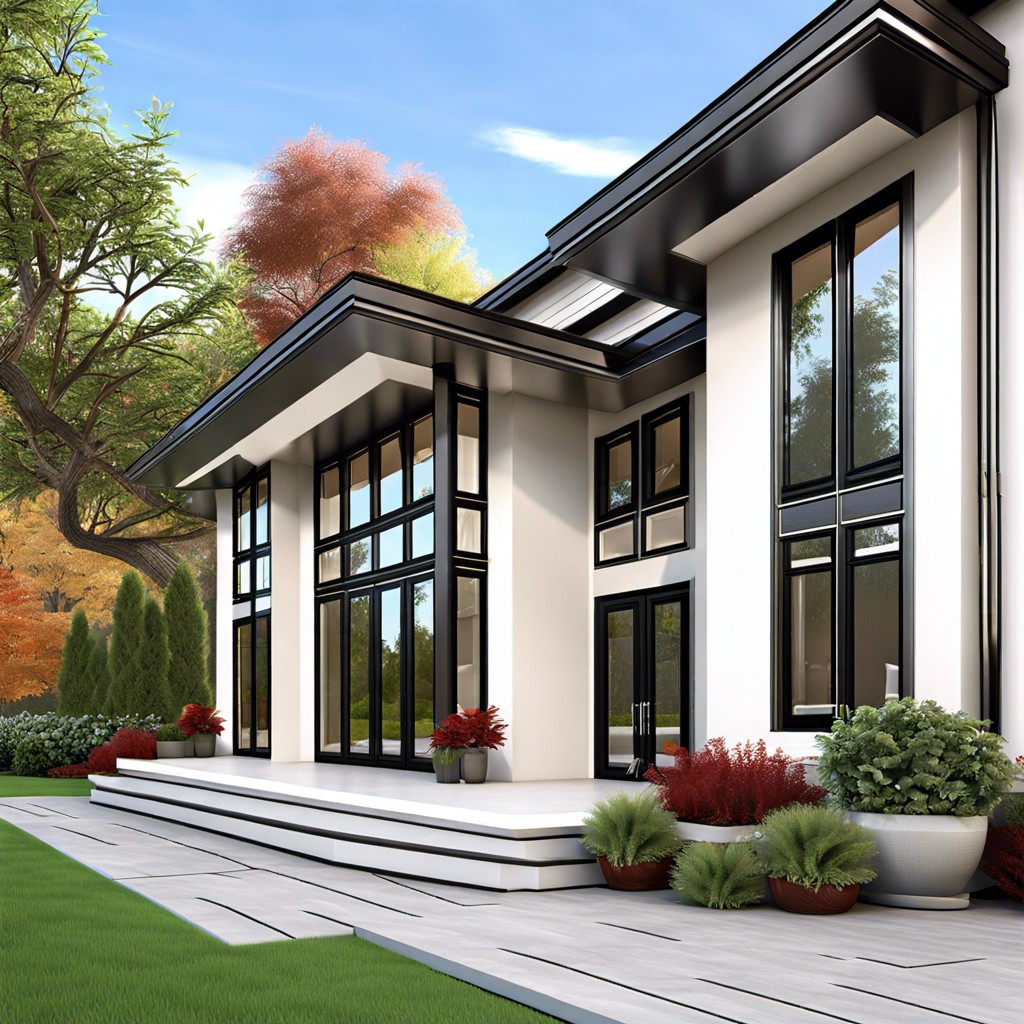
The choice between vinyl and aluminum windows can impact the resale value of your home, making it an important consideration when selecting the best option for your property.
Insulation Properties
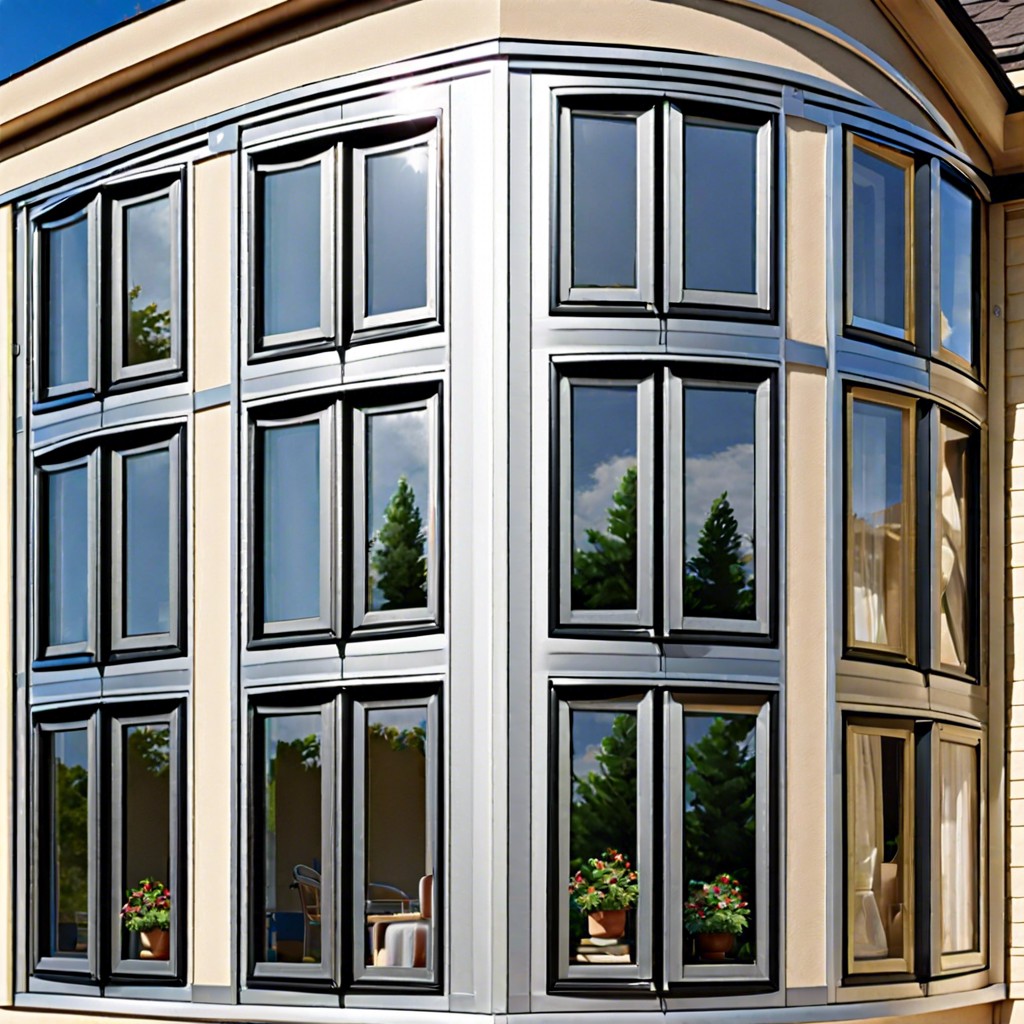
Insulation properties help retain heat in winter and keep out the heat in summer, contributing to energy efficiency.
Regional Climate Suitability
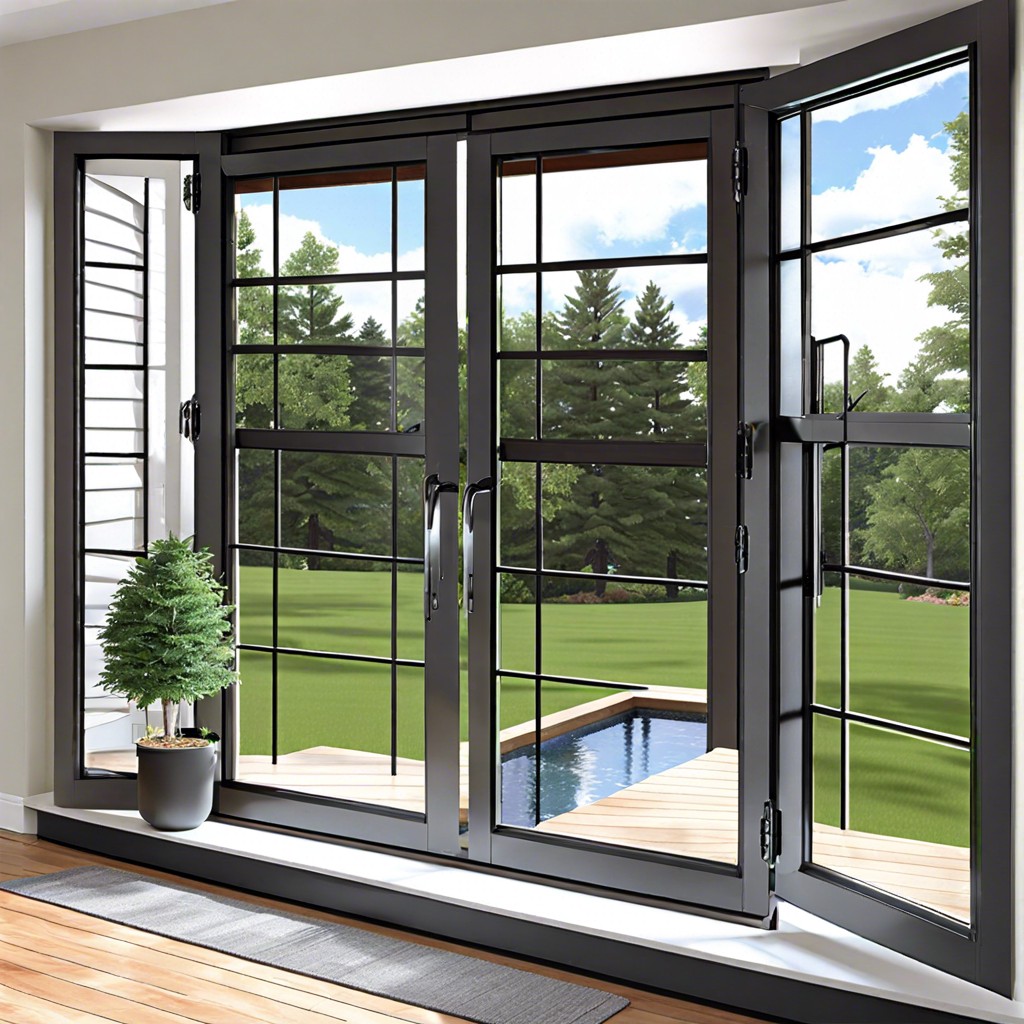
Regional climate suitability refers to which window material—vinyl or aluminum—is best suited for specific weather conditions, ensuring optimal performance and energy efficiency.
Related Stories
- Fiberglass vs Aluminum Window Screen
- 15 Ideas for Aluminum Window Seals
- 15 Aluminum Clad Window Ideas for Effortless Home Elegance
- 15 Ideas for Aluminum Window Weep Holes
- 15 Innovative Ideas: Aluminum Window Frames
Recap
